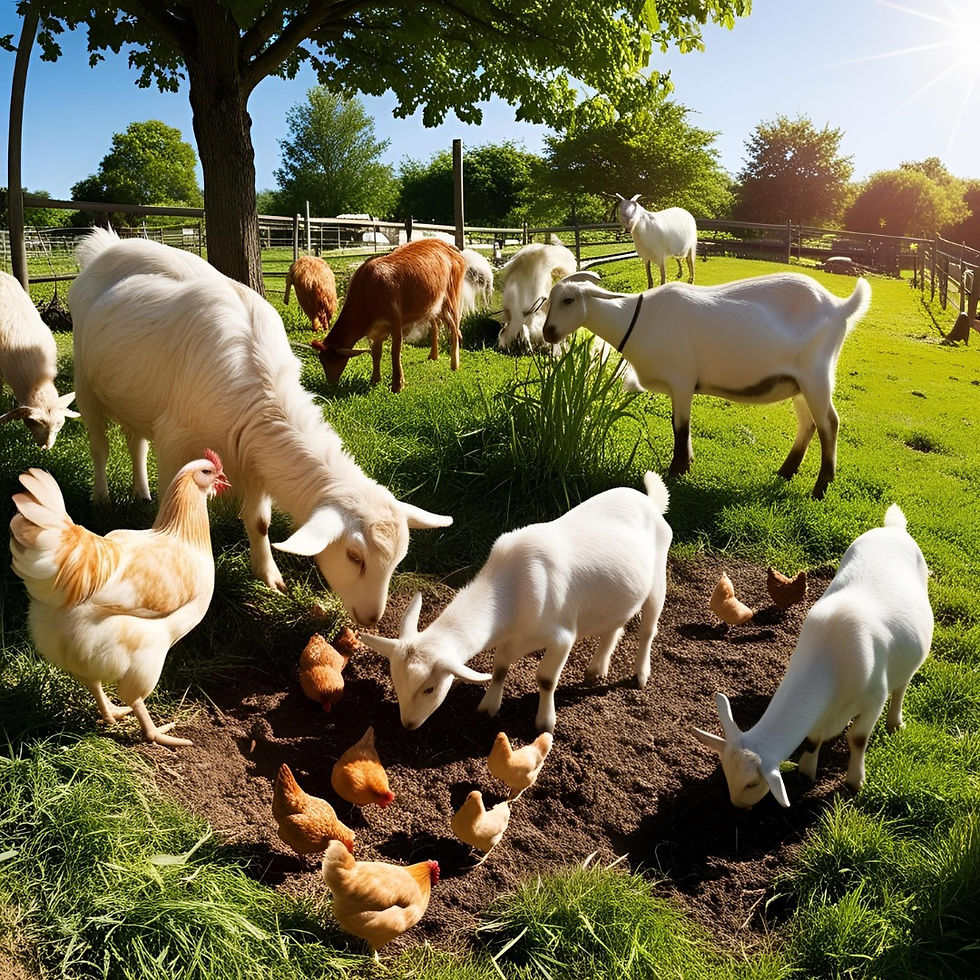Sustainable Livestock Farming: The Key to a Greener Future
- Global Services TGT
- Apr 22, 2025
- 2 min read
Updated: Apr 24, 2025
As the global population continues to grow, so does the demand for meat, dairy and other livestock products certainly. However, conventional livestock farming has been criticized for its environmental impact, including deforestation, greenhouse gas emissions and water consumption. Sustainable livestock farming offers a solution by balancing productivity with environmental stewardship, ensuring a greener and more resilient future.
Sustainable livestock farming refers to farming practices that prioritize animal welfare, environmental conservation and economic viability. It focuses on reducing carbon footprints, improving biodiversity and maintaining healthy ecosystems while ensuring that farmers can make a sustainable living.
Key Principles of Sustainable Livestock Farming
Efficient Land Use & Agroforestry: Integrating livestock farming with crop production (agroforestry) helps to maintain soil fertility and reduces the need for chemical fertilizers. Rotational grazing prevents land degradation and enhances pasture regeneration.
Reduced Carbon Footprint: Using methane-reducing feed additives helps lower greenhouse gas emissions from ruminants. Implementing biogas plants utilizing animal waste helps generate renewable energy.
Water Conservation: Efficient water management practices such as rainwater harvesting and wastewater recycling consumptive water usage. Proper manure management prevents water contamination and improves soil health.
Animal Welfare & Ethical Farming: Free-range and pasture-based livestock systems improve animal health and reduce antibiotic dependency. Sustainable feeding practices, such as using organic and locally sourced feed, reduce environmental impact.
Economic Sustainability & Livelihood Support: Small-scale, family-run livestock farms can be more sustainable than industrial farms. Farmers’ cooperatives and farm-to-market linkages help in fair pricing and economic viability.
Innovations in Sustainable Livestock Farming
Precision Livestock Farming (PLF): Use of AI and IoT for real-time monitoring of animal health and productivity.
Alternative Protein Sources: Research on insect-based and plant-based feed to reduce dependency on resource-intensive grains.
Regenerative Grazing: A technique that mimics natural grazing patterns, improving soil fertility and carbon sequestration.
Challenges & Solutions
High Initial Investment: Government subsidies and financial assistance programs can support small farmers in adopting sustainable practices.
Market Access & Awareness: Strengthening local supply chains and educating consumers on sustainable livestock products.
Climate Change Impact: Developing climate-resilient livestock breeds through selective breeding and genetic advancements.
Sustainable livestock farming is not just an environmental necessity but also an economic opportunity. By adopting eco-friendly practices, farmers can reduce costs, improve productivity and contribute to a healthier planet. A shift towards sustainability in livestock farming will ensure food security while protecting our natural resources for future generations.




Comments